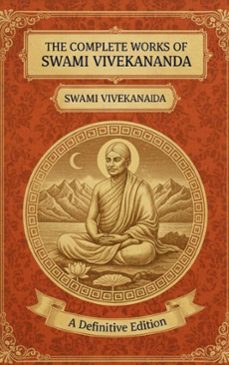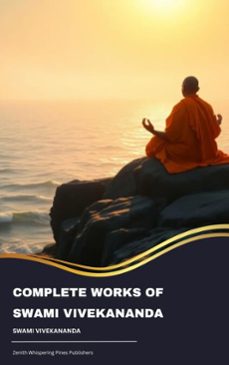Imprescindibles
Más vendidos Libros más leídos eBooks más leídos Todos los libros Todos los libros Autores destacados Series y sagas
Recomendados Libros recomendados Autores destacados Libros que inspiran Vidas con historia LGTBIQ+ English books
Ficción
Literatura Contemporánea Estudios literarios Clásicos Cuentos Poesía Teatro Libros de bolsillo Sagas literarias
Géneros literarios Novela romántica y erótica Novela negra Novela histórica Narrativa fantástica Novela de ciencia ficción Novela de terror Narrativa de humor Narrativa de viajes
No Ficción
Ciencias y tecnología Biología Ciencias Ciencias naturales Divulgación científica Informática Ingeniería Matemáticas Medicina Salud y dietas Formación Idiomas Estilo de vida Libros de Cocina Guías de viaje Narrativa de viajes Deportes Libros de Juegos Manualidades
Humanidades Autoayuda y espiritualidad Ciencias humanas Derecho Economía y Empresa Psicología y Pedagogía Filosofía Sociología Filología Biblioteconomía Estudios filológicos Estudios lingüísticos Estudios literarios Historia y crítica de la Literatura
Infantil
Juvenil
#Jóvenes lectores Narrativa juvenil Clásicos adaptados Libros Wattpad Libros Booktok Libros de influencers Libros de Youtubers Libros Spicy Juveniles Libros LGTBIQ+ Temas sociales Libros ciencia ficción Libros de acción y aventura Cómic y Manga Juvenil Cómic Juvenil Manga Shonen Manga Shojo Autores destacados Jennifer L. Armentrout Eloy Moreno Nerea Llanes Hannah Nicole Maehrer
Libros de fantasía Cozy Fantasy Dark academia Hadas y Fae Romantasy Royal Fantasy Urban Fantasy Vampiros y hombres lobo Otros Misterio y terror Cozy mistery Policiaca Spooky Terror Thriller y suspense Otros
Libros románticos y de amor Dark Romance Clean Romance Cowboy Romance Mafia y amor Romance dramatico Romance dramatico Romcom Sport Romance Otros Clichés Enemies to Lovers Friends to Lovers Hermanastros Slow Burn Fake Dating Triángulo amoroso
Cómic y Manga
Novela gráfica Novela gráfica americana Novela gráfica europea Novela gráfica de otros países Personajes, series y sagas Series y sagas Star Wars Superhéroes Cómics DC Cómics Marvel Cómics otros superhéroes Cómics Valiant
eBooks
Literatura Contemporánea Narrativa fantástica Novela de ciencia ficción Novela de terror Novela histórica Novela negra Novela romántica y erótica Juvenil Más de 13 años Más de 15 años Infantil eBooks infantiles
Humanidades Autoayuda y espiritualidad Ciencias humanas Economía y Empresa Psicología y Pedagogía Filosofía Historia Historia de España Historia Universal Arte Cine Música Historia del arte
Ciencia y tecnología Ciencias naturales Divulgación científica Medicina Salud y dietas Filología Estudios lingüísticos Estudios literarios Historia y crítica de la Literatura Estilo de vida Cocina Guías de viaje Ocio y deportes
Novedades del último mes en eBooks de Hinduismo
Te puede interesar
Categorias
Filtros
Del 1 al 2 de 2
Heritage Words Publishing 9782387175717
This comprehensive collection brings together the complete works of Swami Vivekananda, one of the most influential spiritual leaders of modern India. His writings and lectures explore Vedanta, self-discipline, purpose, and inner strength with clarity and inspiration. A foundational text for readers interested in spirituality, philosophy, and personal transformation.
Ver más
eBook
Zenith Whispering Pines Publishers 9791070052464
"Arise, Awake, and Stop Not Till the Goal is Reached."Swami Vivekananda was the spiritual bridge between East and West, a visionary who transformed ancient Vedic wisdom into a practical blueprint for modern living. This comprehensive collection brings together his legendary speeches, letters, poetry, and deep philosophical treatises. It serves as a clarion call to recognize the innate divinity within every human being and to manifest that strength through service and self-mastery.A Legacy of Strength and Universal Harmony: Vivekanandas teachings move beyond the temple and into the heart of daily life, emphasizing that true religion is the realization of the soul. From his groundbreaking addresses at the Parliament of the Worlds Religions to his "Man-Making" education, his work is designed to build character, willpower, and an "iron" resolve. Whether through the science of meditation or the path of selfless action, these works offer a timeless map for anyone seeking to understand the nature of the self and the unity of all existence.Vivekanandas words continue to inspire leaders, scientists, and seekers alike. His message is one of courage, rationality, and boundless hope. This volume is an essential cornerstone for any library of Eastern philosophy, comparative religion, and personal transformation.Unlock the power of your own soul. Buy "The Complete Works of Swami Vivekananda" today and embark on the ultimate journey of self-discovery.
Ver más
eBook
Del 1 al 2 de 2



























